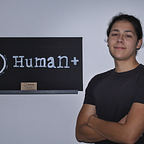The Aim of Meditation
Originally published at humanplus.substack.com
As humans, we cling to the notion of immediate gratification. For something to be seen as worthwhile in our eyes, it must provide us with some kind of benefit virtually instantly. If not, then we are deterred and the idea that it really never was worth it is reinforced. This is not inherently a negative thing; immediate gratification is a remnant of our reptile minds, and it’s what aided our ancestors in their survival. However, the days of hunting predators and travelling in packs is over and the time has come to be still, make peace with our minds, and cultivate a deeper understanding of ourselves and of the world.
The beautiful thing about meditation is that it can be done by anyone at anywhere at anytime. This is due to the very nature of meditation itself; it is not an activity that one performs, per se, but rather it is awareness itself. That’s all it is. Just pure awareness. Meditation does not even have to be done in a formal setting; it can be “done” alongside literally every other regular activity. The beauty of meditation lies in its widespreadness; it is available for all, and its boundless application can only let us live and coexist richer.
Depending on who you ask, meditation serves a different purpose:
- For the yogi, meditation is a gateway into reaching communion with the divine. Once they reach the deepest depth of their soul, they find it is indistinguishable from that of reality’s.
- For the Buddhist, meditation allows for a genuine cultivation of compassion towards oneself and everyone else.
- For the psychiatrist, meditation might be a useful tool to aid a patient in taming hyperactive conditions.
- For the secularist, meditation is a process in which they can learn to better observe and control arising feelings, emotions, and thoughts.
Of course, the motive for meditation can be a combination of all of the above, or for any other reason that I have not stated. Meditation is malleable, something that is different for each one of us. In a way, it sort of mirrors life: sometimes messy, sometimes blissful, sometimes confusing, and sometimes crystal clear.
So, we now know that the reason for engaging in meditation to unravel a deeper awareness of oneself (which, in itself, leads to a deeper awareness of the world). But the question remains: why is awareness so significant? I mean, you’re aware that you are reading these words right now, no? So perhaps it seems like you are not really lacking awareness at all. To answer this question, I’d like to pose another one: how much of your day is spent in a fog? Ask yourself if you can remember the sensations, thoughts, and happenings that occurred on your commute to work today. Or did you go into autopilot and later realized that you didn’t even recall consciously driving?
The point is that much of our life is spent in a state of “half-in, half-out”-ness. We are alive, yes, but are we really? Do we really live our lives in control or do we live at the mercy of our incessant thoughts?
Take this quote by Sam Harris, philosopher, neuroscientist, and meditation teacher:
“Until you have some capacity to be mindful, you have no choice but to be lost in every next thought that arises.”
He goes on to say that this applies to emotions, as well. Without awareness, you can fall victim to mindless anger, fear, anxiety, sorrow, and desire. Instead of being in control of them like you should be, they take you hostage. Obviously, this kind of behavior can lead to destructive reactions and can damage our relationships. Over time, we risk being so engulfed by negativity that we just resort to existing miserably.
I am of the firm conviction that if each one of us would employ the practice of meditation into our lives, we would immediately experience a newfound environment of peace, compassion, and clarity.
If you have not done so yet, please consider subscribing to Human+. When you do, you support the newsletter tremendously while also receiving weekly valuable write-ups to help you live better. Please share this with your friends!
If you would like to support the project another way, you can click on the “Donate/More Benefits” button below or go to www.alanrr.com and click on the coffee button in the bottom-right corner to contribute a monetary amount. Anything is accepted and greatly appreciated!
Lastly, I have relaunched my Patreon and reverted my Buy Me a Coffee page to donation-only. I did this because Patreon allows me to offer superior and additional extra content for you. The newsletter will still be hosted on here for $5 a month, but please do check out the Patreon page and become a Patron if it interests you.
-Alan
Additional Resources
- A thought-provoking interview with Sam Harris discussing meditation and its use in the world.
- r/Meditation, an internet community where you can discuss meditation, the stories of people’s experience with it, and occasional eye-opening sentence.
- The Power of Now, the book that changed my life. Seriously. An incredible guide to conscious living and spirituality as a whole.
- An animated short that provides a general overview on the practice of mindfulness meditation.
Social Media
